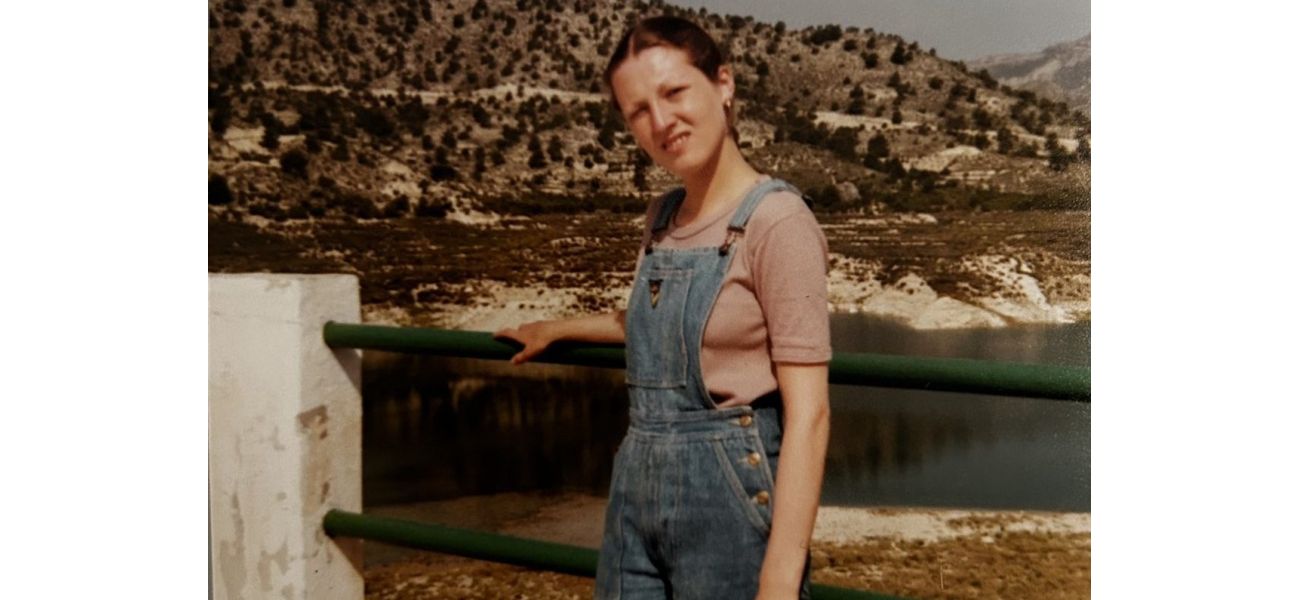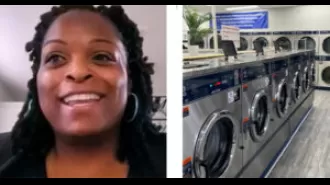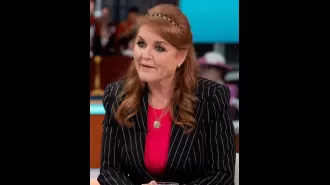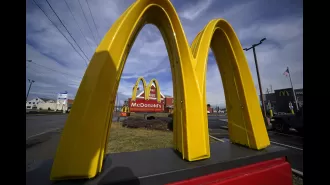As a baby, I lost my mother to murder and I seek closure.
She never got to be a mom because her life was tragically ended too soon.
December 2nd 2024.

I never got the chance to know my mum, Tina Wing. She passed away when I was just one year old, at the young age of 32. Growing up, I never fully understood the weight of my loss, but as I reached the same age she was when she died, it hit me hard. I now describe my grief as ambiguous loss - it's unconventional and unclear. On top of not knowing my mum, her death was complicated by the fact that she was murdered and her killer was never brought to justice.
Before her passing, my mother was seeking treatment at Friern Barnet Hospital for postnatal depression and rehabilitation. She had given birth to me just a year prior. On June 28, 1992, she went for a walk around the hospital grounds by herself - something she hadn't done since being admitted. Four hours later, her body was found with multiple stab wounds and strangulation marks. The autopsy revealed that she died from strangulation, and the brutality of the attack suggested "overkill".
Unfortunately, the police only focused on one suspect - my father. He went to trial for my mother's murder, but was found not guilty in June 1993 due to inconsistent testimonies. I was too young to understand any of this at the time, and it was decided that I would live with my 60-year-old grandmother.
Now, at the same age my mother was when she died, I have a better understanding of my grief. My aunt Lesley, who had taken care of me after my mum's passing, gathered my cousins and I when I was 10 years old to tell us about her death. But I was too numb to fully process it, and instead asked if I could go play. My grandmother was my rock throughout my childhood, but I always felt conscious of her age and clung to her even more because of it.
When my grandmother had a stroke nine years ago and was diagnosed with dementia, I came out as gay at 23 and turned to a party lifestyle as a coping mechanism. However, around five years ago, I met the head of a TV channel at an event and shared a bit about my mother's story. This led to the creation of my two-part documentary, 'Who Murdered You, Mum?' - the most I had ever spoken or learned about my mother.
During filming, I discovered that my dad was still alive, living in London with a family of his own. It was a shock to me, and I struggled to feel connected to someone I had never known. The documentary became a way for me to confront my grief and reclaim control over my own story. It also brought my aunt Lesley to grieve for the first time.
I wanted to not only grieve my mother together with my family, but also celebrate who she was as a person, beyond how she died. This is when I learned about ambiguous loss and how it explained the numbness I had felt towards my mother for so long. It was during filming that I also realized I had reached the same age as my mum when she died, and it was a difficult realization - she never got the chance to be a mother because her life was taken away from her.
My grandmother passed away two years ago before we were able to find any answers or closure. However, I am hopeful now that the Metropolitan Police are reviewing my mother's case, and I am determined to find justice for her. This hope is what keeps me going, and I want to show others that strength and resilience can come from tragedy.
If you have a story to share, please get in touch with us. Let's continue to raise awareness and put an end to the epidemic of violence against women.
Before her passing, my mother was seeking treatment at Friern Barnet Hospital for postnatal depression and rehabilitation. She had given birth to me just a year prior. On June 28, 1992, she went for a walk around the hospital grounds by herself - something she hadn't done since being admitted. Four hours later, her body was found with multiple stab wounds and strangulation marks. The autopsy revealed that she died from strangulation, and the brutality of the attack suggested "overkill".
Unfortunately, the police only focused on one suspect - my father. He went to trial for my mother's murder, but was found not guilty in June 1993 due to inconsistent testimonies. I was too young to understand any of this at the time, and it was decided that I would live with my 60-year-old grandmother.
Now, at the same age my mother was when she died, I have a better understanding of my grief. My aunt Lesley, who had taken care of me after my mum's passing, gathered my cousins and I when I was 10 years old to tell us about her death. But I was too numb to fully process it, and instead asked if I could go play. My grandmother was my rock throughout my childhood, but I always felt conscious of her age and clung to her even more because of it.
When my grandmother had a stroke nine years ago and was diagnosed with dementia, I came out as gay at 23 and turned to a party lifestyle as a coping mechanism. However, around five years ago, I met the head of a TV channel at an event and shared a bit about my mother's story. This led to the creation of my two-part documentary, 'Who Murdered You, Mum?' - the most I had ever spoken or learned about my mother.
During filming, I discovered that my dad was still alive, living in London with a family of his own. It was a shock to me, and I struggled to feel connected to someone I had never known. The documentary became a way for me to confront my grief and reclaim control over my own story. It also brought my aunt Lesley to grieve for the first time.
I wanted to not only grieve my mother together with my family, but also celebrate who she was as a person, beyond how she died. This is when I learned about ambiguous loss and how it explained the numbness I had felt towards my mother for so long. It was during filming that I also realized I had reached the same age as my mum when she died, and it was a difficult realization - she never got the chance to be a mother because her life was taken away from her.
My grandmother passed away two years ago before we were able to find any answers or closure. However, I am hopeful now that the Metropolitan Police are reviewing my mother's case, and I am determined to find justice for her. This hope is what keeps me going, and I want to show others that strength and resilience can come from tragedy.
If you have a story to share, please get in touch with us. Let's continue to raise awareness and put an end to the epidemic of violence against women.
[This article has been trending online recently and has been generated with AI. Your feed is customized.]
[Generative AI is experimental.]
0
0
Submit Comment





